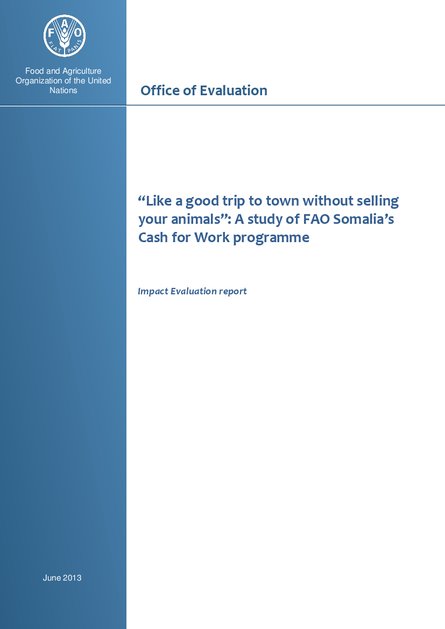
This report is the result of a study of FAO Somalia’s Cash for Work (CFW) interventions implemented after the 2011 crisis. It was commissioned as part of the evaluation of FAO’s cooperation with Somalia, and mainly based on fieldwork conducted in 7 villages of the Gedo region, South Central Somalia in October and November 2012. The main underlying assumption to be tested was that by disbursing cash to targeted poor and vulnerable individuals and rehabilitating communal productive assets, households and communities would experience short and long term positive gains. The study’s scope was to understand the positive and negative, intended and unintended impacts of cash inflow and infrastructures, as reported by community members. Fieldwork was conducted by a team of four local researchers and a team leader who possessed basic knowledge of household survey data collection techniques and a native understanding of social and economic dynamics. The methodology was based on iterative training and learning, immersion and accumulation of information, adaptability and flexibility of the approach, and triangulation. Four participatory tools were used to guide group and individual interviews with community members.